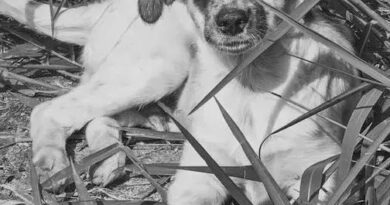What is Puppy training tips
Understanding Puppy Training Tips
Puppy training tips are essential for new dog owners who want to ensure their furry friends grow into well-behaved adults. Training a puppy involves teaching basic commands, socialization, and housebreaking, which are crucial for a harmonious relationship between the puppy and its owner. By implementing effective training techniques, you can foster a positive environment that encourages good behavior and strengthens the bond with your pet.
Establishing a Training Routine
One of the most important puppy training tips is to establish a consistent training routine. Puppies thrive on structure, and having a set schedule helps them understand when to expect training sessions, playtime, and meals. Aim for short training sessions of about 5 to 10 minutes, several times a day, to keep your puppy engaged and prevent boredom. Consistency in timing and commands will reinforce learning and help your puppy grasp new concepts more quickly.
Positive Reinforcement Techniques
Utilizing positive reinforcement is a cornerstone of effective puppy training tips. This method involves rewarding your puppy for desired behaviors, which encourages them to repeat those actions. Rewards can include treats, praise, or playtime, and should be given immediately after the behavior occurs. This approach not only helps your puppy learn but also builds their confidence and strengthens your bond, making training a fun experience for both of you.
Socialization is Key
Another crucial aspect of puppy training tips is socialization. Exposing your puppy to various environments, people, and other animals is vital for their development. Early socialization helps prevent behavioral issues such as fearfulness or aggression later in life. Take your puppy on walks, visit dog parks, and invite friends over to create positive experiences that will help them become well-adjusted adults.
Basic Commands to Teach
Teaching basic commands is one of the most effective puppy training tips. Start with essential commands such as “sit,” “stay,” “come,” and “down.” These commands form the foundation of your puppy’s training and can help keep them safe in various situations. Use clear, consistent cues and reward your puppy for successfully following commands. Gradually increase the difficulty of the commands as your puppy becomes more proficient.
Housebreaking Your Puppy
Housebreaking is often one of the first challenges new puppy owners face, making it a vital part of puppy training tips. Establish a regular bathroom schedule, taking your puppy outside frequently, especially after meals and naps. Praise and reward them immediately after they eliminate outside to reinforce the behavior. Accidents will happen, so be patient and avoid punishment, as it can create fear and confusion.
Dealing with Common Behavioral Issues
Puppies may exhibit various behavioral issues, such as chewing, barking, or jumping. Understanding these behaviors is essential for effective training. Providing appropriate chew toys can redirect chewing behavior, while teaching the “quiet” command can help manage excessive barking. Consistent training and redirection are key puppy training tips for addressing these common issues and promoting good behavior.
Patience and Persistence
Patience and persistence are critical components of successful puppy training tips. Puppies are learning and growing, and it’s essential to remember that mistakes will happen. Stay calm and positive, and avoid frustration. Celebrate small victories and remain committed to your training goals. With time and dedication, your puppy will learn and adapt, leading to a well-behaved companion.
Seeking Professional Help
If you encounter challenges that seem overwhelming, don’t hesitate to seek professional help. Puppy training classes or one-on-one sessions with a certified trainer can provide valuable guidance and support. These professionals can offer tailored advice and techniques that suit your puppy’s specific needs, ensuring a smoother training process and a happier, well-adjusted dog.
Continuing Education for Your Puppy
Finally, remember that puppy training doesn’t end after the basics are learned. Continuing education is one of the most important puppy training tips. Engage in advanced training classes, agility courses, or even fun activities like trick training. Keeping your puppy mentally stimulated and challenged will not only reinforce their training but also enhance your bond and provide a fulfilling life for your furry friend.



